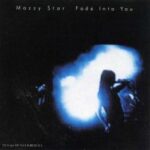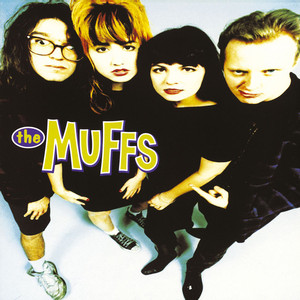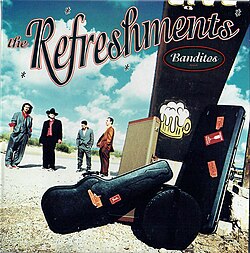 In 1993, Mazzy Star released a song that seemed to emerge from a foggy, melancholic dreamscape, capturing a quiet, haunting beauty that few artists had ever dared to explore in the mainstream. “Fade Into You,” the lead single from their second album So Tonight That I Might See, instantly became emblematic of a generation’s sense of yearning, introversion, and romantic melancholy. It wasn’t flashy or aggressive like much of the alternative rock dominating the charts at the time; instead, it crept into listeners’ hearts with ethereal guitars, slow, deliberate rhythms, and the voice of Hope Sandoval, which felt like it belonged to another, more intimate dimension. The song’s brilliance lay in its simplicity: a tender meditation on desire, distance, and the longing to merge with another person so completely that all boundaries dissolve.
In 1993, Mazzy Star released a song that seemed to emerge from a foggy, melancholic dreamscape, capturing a quiet, haunting beauty that few artists had ever dared to explore in the mainstream. “Fade Into You,” the lead single from their second album So Tonight That I Might See, instantly became emblematic of a generation’s sense of yearning, introversion, and romantic melancholy. It wasn’t flashy or aggressive like much of the alternative rock dominating the charts at the time; instead, it crept into listeners’ hearts with ethereal guitars, slow, deliberate rhythms, and the voice of Hope Sandoval, which felt like it belonged to another, more intimate dimension. The song’s brilliance lay in its simplicity: a tender meditation on desire, distance, and the longing to merge with another person so completely that all boundaries dissolve.
“Fade Into You” didn’t need pyrotechnics to leave an impression. Its charm was subtle, ghostly, and utterly intoxicating, perfectly suited for the early ’90s landscape of alternative radio and college playlists. While grunge bands like Nirvana and Pearl Jam commanded the airwaves with raw energy, Mazzy Star offered an oasis of calm, a moment of reflection. The song’s moodiness resonated with listeners who understood that longing and emotional depth often come wrapped in quiet, almost whispering tones. It was intimate, haunting, and achingly real—a ballad for those who had ever felt unseen or yearned for connection that felt just out of reach.
Over the years, “Fade Into You” has become Mazzy Star’s signature song, an enduring anthem for introspective hearts everywhere. It captures the beauty of vulnerability, the bittersweet ache of unfulfilled desire, and the hypnotic power of simplicity in songwriting—a rare feat in any era of music.
The Sound of Melancholy
From the very first chord, “Fade Into You” establishes a dreamlike atmosphere. David Roback’s slide guitar weaves a delicate, shimmering texture that feels simultaneously intimate and infinite, like sunlight refracted through a misted window. The drums and bass are slow, understated, and almost lazy, creating the sensation of floating. Sandoval’s voice enters gently, a soft sigh that carries the weight of longing without ever sounding forced. There’s an economy to every note; the music breathes with room for space and silence, allowing the listener to sink completely into its mood.
The production of “Fade Into You” is deceptively simple. There are no towering walls of sound or dramatic crescendos. Instead, the song relies on texture, tone, and repetition. Roback’s guitar, subtly distorted and drenched in reverb, creates a warm haze that feels like the background to a private reverie. Sandoval’s vocals, intimate and confessional, float effortlessly above the instrumentation, giving the impression that she is speaking directly to the listener. The effect is hypnotic—an enveloping cocoon of sound that draws you in and refuses to let go.
The restrained instrumentation allows the song’s emotional core to shine. Every pause, every breath between lines, carries meaning. In this way, Mazzy Star achieved something extraordinary: a song that is both minimalistic and profoundly affecting.
Lyrical Longing
The lyrics of “Fade Into You” are sparse yet deeply evocative:
“Fade into you / Strange you never knew / Fade into you / I think it’s strange you never knew.”
At first, these lines seem simple, almost repetitive, but their power lies in their subtlety. They capture the frustration of unrequited love, the feeling of wanting to become part of someone’s world while remaining invisible. The repetition emphasizes the cyclical nature of longing—the way desire and disappointment can loop endlessly. Sandoval’s delivery makes these words feel personal, like a secret shared in hushed tones.
The song never resolves the tension it creates. There’s no narrative climax or declaration of love; instead, it remains suspended in a liminal space, reflecting the uncertainty of human emotion. This makes “Fade Into You” feel authentic. Life, after all, rarely offers perfect resolution, and the song honors that reality. Its beauty lies in acknowledging that yearning without needing to tidy it up.
Other lines, like “A stranger’s light comes on slowly,” evoke both physical and emotional imagery. There’s a sense of observing someone from a distance, a quiet illumination that highlights separation as much as connection. It’s a delicate balance of intimacy and distance—a duality that Mazzy Star would explore throughout their career.
Mazzy Star’s Sonic Signature
“Fade Into You” exemplifies Mazzy Star’s unique sound: a combination of dream pop, folk, and subtle psychedelia. Roback, previously a member of the band Rain Parade, brought a deep understanding of mood and texture to the project. His slide guitar work is both restrained and expressive, capable of conveying melancholy as effectively as any lyric. Sandoval’s vocals, meanwhile, are a study in emotional economy. She rarely raises her voice, rarely forces emphasis; yet her delivery communicates a depth of feeling that is impossible to ignore.
This combination—Roback’s lush, languid instrumentation and Sandoval’s ghostly vocal presence—gave Mazzy Star an otherworldly identity in the alternative music scene of the early 1990s. While many contemporaries pursued bombast or edgy aggression, Mazzy Star perfected the art of understatement. “Fade Into You” became the perfect introduction to their world: delicate, dreamlike, and heartbreakingly human.
The song also highlighted the band’s skill in creating a cinematic quality within their music. Listening to “Fade Into You” feels like walking through a foggy evening street or gazing at a twilight sky—there’s a strong sense of place and atmosphere. It’s music that evokes emotion as much as it entertains, offering listeners a space to reflect and feel.
Cultural Impact
Upon its release, “Fade Into You” became Mazzy Star’s breakout hit, propelling the band into wider recognition. It received significant airplay on alternative radio and MTV, which was still a powerful force in shaping youth culture in the early 1990s. Despite its commercial success, the song retained an aura of intimacy and mystique, a rare balance that few bands achieve when crossing over to mainstream awareness.
The song has since appeared in numerous films, television shows, and advertisements, often used to underscore moments of introspection, romance, or melancholy. Its use in media has only cemented its status as a cultural touchstone for the era, appealing to anyone who has felt a quiet ache of longing or the bittersweet beauty of fleeting connection.
“Fade Into You” has influenced countless artists in the dream pop, indie, and alternative scenes. Its emphasis on texture, mood, and understated vocal delivery can be heard in the work of bands like Beach House, Cigarettes After Sex, and Daughter. The song proved that emotional impact does not require complexity; simplicity, when executed with care, can resonate universally.
Enduring Appeal
Part of “Fade Into You”’s enduring appeal lies in its timelessness. Unlike songs tethered to the trends of their era, Mazzy Star’s work feels perpetually contemporary. Its production, while characteristic of the early 1990s, avoids heavy-handed nostalgia. The themes of longing, invisibility, and the desire to connect are universal and remain relevant to listeners of every generation.
Live performances of the song, though rare, enhance its mythic quality. Sandoval’s ethereal stage presence and the band’s restrained accompaniment create an almost hypnotic effect, mirroring the intimacy of the studio recording while allowing the audience to experience the song’s emotional depth in a shared space. Each performance is a reminder of the song’s power to transport listeners, even decades after its creation.
Emotional Resonance
“Fade Into You” succeeds where many love songs fail because it captures a feeling rather than telling a story. It speaks to those moments of quiet yearning that often go unspoken. There’s a universality to its sentiment: the desire to be seen, the ache of unrequited love, the hope that someone will notice and understand you. Sandoval’s voice, fragile and intimate, conveys these emotions with stunning authenticity.
The song’s minimalist instrumentation complements its lyrical themes. Every guitar line, drumbeat, and note of reverb feels purposeful, contributing to an overarching sense of dreamlike contemplation. This creates a listening experience that is immersive, emotional, and ultimately cathartic.
Legacy
Decades after its release, “Fade Into You” remains Mazzy Star’s signature song, a defining anthem of 1990s alternative music. It has endured because it speaks to something deeply human: the tension between longing and fulfillment, visibility and invisibility, closeness and distance. In a musical landscape often dominated by bombast and spectacle, the song’s quiet power stands out.
Its influence continues to echo across generations of musicians and listeners. Artists in genres ranging from indie rock to ambient pop cite Mazzy Star’s approach to mood, space, and texture as formative. Even outside the music world, the song has become a shorthand for wistful introspection, featured in media that seeks to evoke tenderness and melancholy.
The song’s minimalistic elegance, haunting melody, and emotional honesty combine to create an experience that is as affecting today as it was when first released in 1993. It is a song that lingers in the mind, gently coloring memories and emotions long after the final note fades.
Final Thoughts
Mazzy Star’s “Fade Into You” is more than just a single from 1993; it is a timeless meditation on longing and emotional vulnerability. Its ethereal instrumentation, delicate vocals, and understated lyrics converge to create a hauntingly beautiful listening experience. The song’s genius lies in its simplicity, proving that emotional resonance does not require complexity.
Decades later, “Fade Into You” continues to captivate listeners with its dreamlike atmosphere and heartfelt honesty. It serves as a reminder that music can capture the subtleties of human emotion in ways that words alone cannot. Its enduring appeal is a testament to the band’s artistry and the song’s universal themes. In a world often overwhelmed by noise and distraction, “Fade Into You” offers a moment of quiet reflection—a chance to sink into the shadows, embrace vulnerability, and connect with the aching beauty of the human heart.
For anyone who has ever felt unseen, who has ever longed for connection, or who has ever wanted to disappear into another person’s presence, Mazzy Star’s “Fade Into You” remains a perfect, haunting companion. It is, in every sense, a song that lingers, fades, and persists—forever echoing in the spaces between music and memory.


